A messy world once again intrudes on Canada's tidy partisan debates
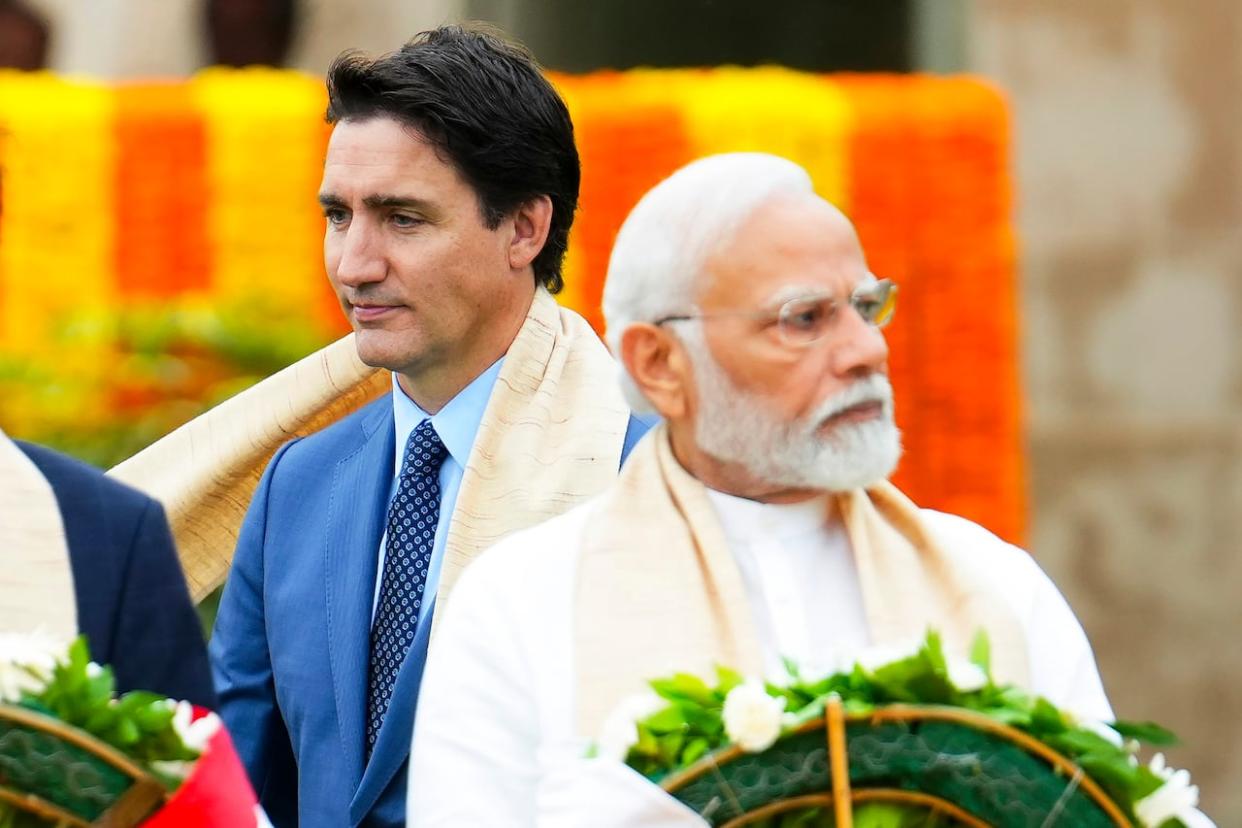
Roland Paris, a professor of international affairs at the University of Ottawa and a former adviser to Prime Minister Justin Trudeau, was testifying before a Senate committee studying Canada's foreign service last year when a Conservative senator pressed him to agree with a long indictment of recent Canadian foreign policy.
"Canada is not alone in facing the challenges of responding to an incredible series of transformations that have taken place in the world," Paris responded.
He offered his own list of external challenges: China, Russia, climate change, COVID-19, Donald Trump. He recalled the maxim that there are decades when nothing happens and weeks when decades happen. We have been living through a series of weeks, Paris said.
"Having said that, it's a wake-up call for this country," he continued. "I don't think that we have devoted the kind of attention to our foreign policy as a country — actually, I would take it back over the last 20 years — that we need to.
"We have tended to treat foreign policy as a secondary issue, government after government. What we're all waking up to is that foreign policy is inseparable from domestic policy, that the international environment is directly affecting Canadians."
Trudeau's unprecedented announcement on Monday — that Canadian officials have reason to believe there is a link between agents of the government of India and the murder of Hardeep Singh Nijjar — is another wake-up call.
A turbulent world is once again intruding on Canada's tidy partisan debates — making the case again for thinking harder about what happens beyond our borders.
Trudeau's time in office has been marked by a series of acute international crises involving foreign states: the kidnapping of two Canadian citizens by Islamic militants in the Philippines, the destruction of flight PS752 by the Iranian military, China's imprisonment of Michael Kovrig and Michael Spavor, and now the possibility that a Canadian citizen was targeted for murder by a foreign government.
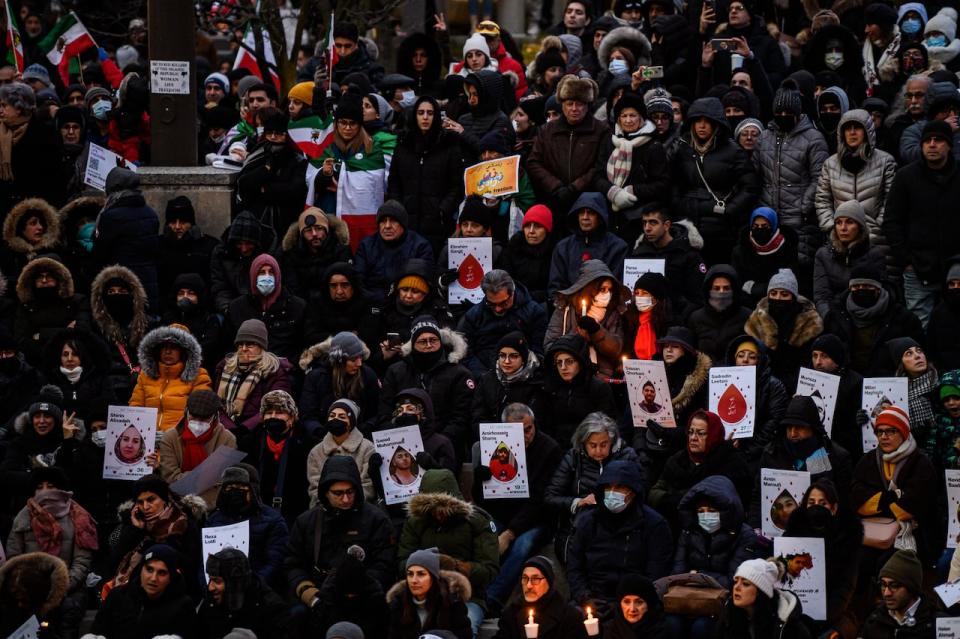
People attend a vigil in Toronto on Jan. 8, 2023 marking the three-year anniversary of the destruction of flight PS752. (Christopher Katsarov/The Canadian Press)
In 2018, Canada found itself in a diplomatic and economic dispute with Saudi Arabia after then-foreign affairs minister Chrystia Freeland expressed support for activists in that country. And a few months after Paris gave his testimony last October, media reports based on intelligence leaks raised questions about attempts by China to interfere in Canadian elections.
Canada also has felt the impact in recent years of major challenges that originated beyond this country's borders: the election of Trump and the subsequent renegotiation of NAFTA, a global migration crisis that led to a political fight over Roxham Road, a pandemic, the all-out Russian invasion of Ukraine. (Ukrainian president Volodymyr Zelenskyy's address to Parliament on Friday will be another reminder of that conflict's real consequences and Canada's role in supporting a vital ally.)
And then there is climate change — a truly global threat, the effects of which only become more obvious with each passing year.
Lucky Canada
This is a lucky country. Flanked by three oceans and a friendly superpower, Canada has allowed itself to worry less about foreign policy than other countries. There might also be some unspoken belief among Canadians that this country doesn't matter much in the wider world anyway.
That luck may be running out. Perhaps it's time for Canadians to hear a more serious discussion of international affairs than they're used to hearing from their political leaders.
Since Trudeau's statement on Monday — perhaps one of the most remarkable statements ever made in the House of Commons — there has been relatively little follow-up by parliamentarians.
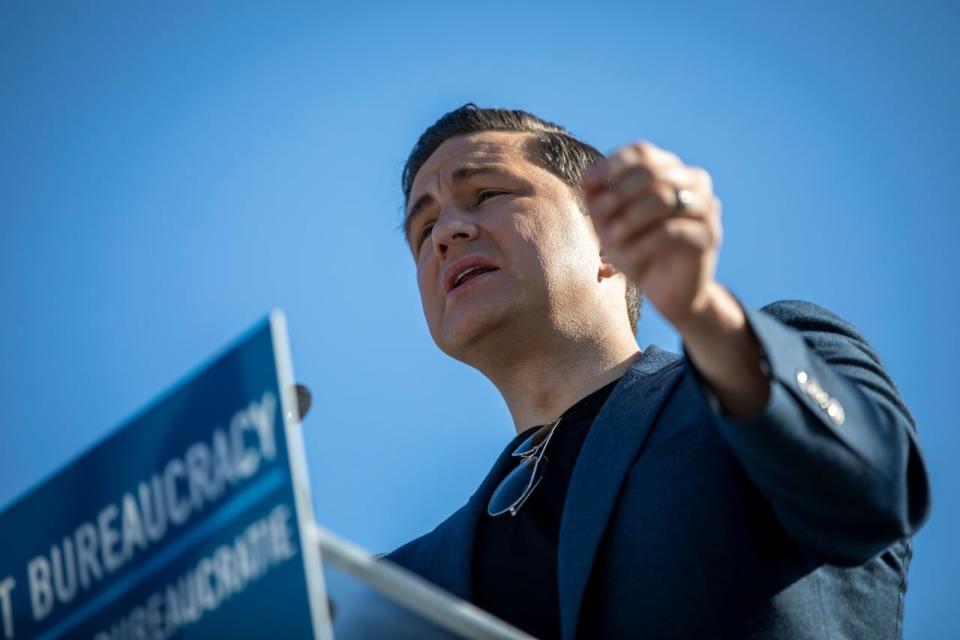
Conservative Leader Pierre Poilievre and other members of his caucus have had little to say publicly about the conflict with India. (Ben Nelms/CBC)
Conservative Leader Pierre Poilievre, who previously mocked Trudeau's reception in India, told reporters on Tuesday the prime minister needed to "come clean with all the facts" about the allegations — a phrase typically employed when there's some suggestion of a cover-up. He then offered a vague and unexplained comment alleging that Trudeau hadn't said anything when he knew about Chinese foreign interference.
Since then, there has been almost no mention of the matter in question period.
Perhaps that's because the parties realize this is a truly serious matter that needs to be approached with care and sobriety. Perhaps the politics of the issue are too complicated. Or perhaps Canadian politicians simply lack the vocabulary to discuss a situation such as this.
Simplistic views of a complex world
Canadians are too often presented with simple, binary views of international affairs, said Adam Chapnick, a professor at the Royal Military College who has written extensively about Canadian foreign policy — ones that say things are simply good or bad, right or wrong, and "compromises aren't necessary, negotiations aren't ugly, [and] you don't have to give up your so-called principles."
"Foreign policy is really hard," Chapnick said.
Paris said that since foreign policy is only "sporadically" a part of Canadian politics, there is "very little incentive for aspiring politicians to invest in understanding the world and Canada's changing place within it."
Chapnick argues that Canadian officials have shown themselves capable of leaping into action and mounting serious responses when crises emerge (Donald Trump, the two Michaels, Ukraine).
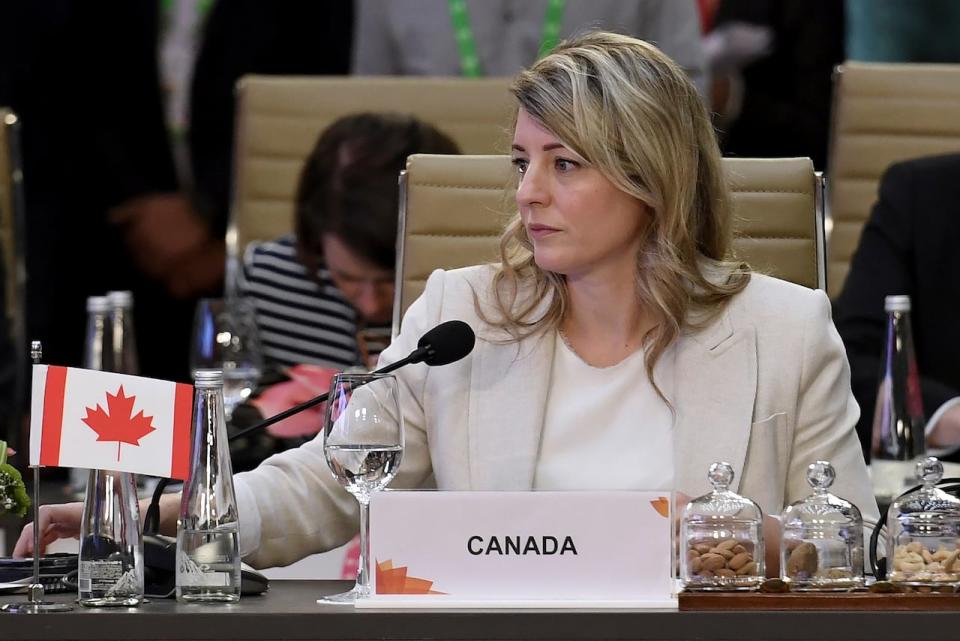
Foreign Minister Mélanie Joly. Her office has seen a lot of turnover since 2000. (Olivier Douliery/Pool via AP Photo)
But it's also fair to wonder whether Canadian foreign policy suffers from a lack of consistency at the top. Since 2000, Canada has had 15 ministers of foreign affairs. It has had just seven finance ministers over the same period.
Time in the job allows a foreign minister to build up experience and foster personal relationships with their counterparts in other countries, Chapnick said — things that a minister can call on when a crisis arises. The importance of having credit in what Chapnick calls the "favour bank" also makes the case for further increases to spending on foreign aid and the military.
Too often, Chapnick said, Canada has been willing only to do the bare minimum when called upon to help.
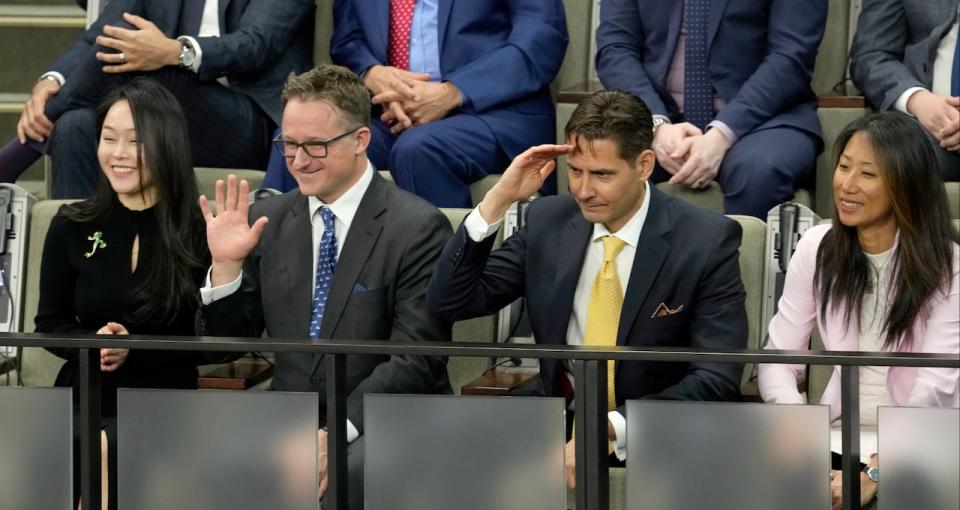
Michael Spavor, centre left, and Michael Kovrig, centre right, receive a standing ovation in the House of Commons prior to U.S. President Joe Biden's address to Parliament in Ottawa on March 24, 2023. (Adrian Wyld/The Canadian Press)
The importance of strong alliances has been demonstrated repeatedly over the past eight years — consider how Canada rallied nations to oppose "hostage diplomacy" after China imprisoned Kovrig and Spavor. Allies might be vital in navigating the tensions between Canada and India as well — even if many Western nations might be reluctant now to condemn India, given its geopolitical status as a bulwark against China.
It's not that Canada hasn't made contributions or notched successes in foreign policy over the past 20 years. Though it was subject to controversy at home, Stephen Harper's government put a lot of effort into a maternal and newborn health initiative. Under Justin Trudeau, Canada has re-engaged meaningfully in international efforts to fight climate change.
But the world is practically demanding that Canada — our politicians and voters — start taking it more seriously.
"Canadians aren't used to the brutal world of power politics intruding into their lives," Paris said this week. "We've been largely insulated from that for a long time, but no longer."


